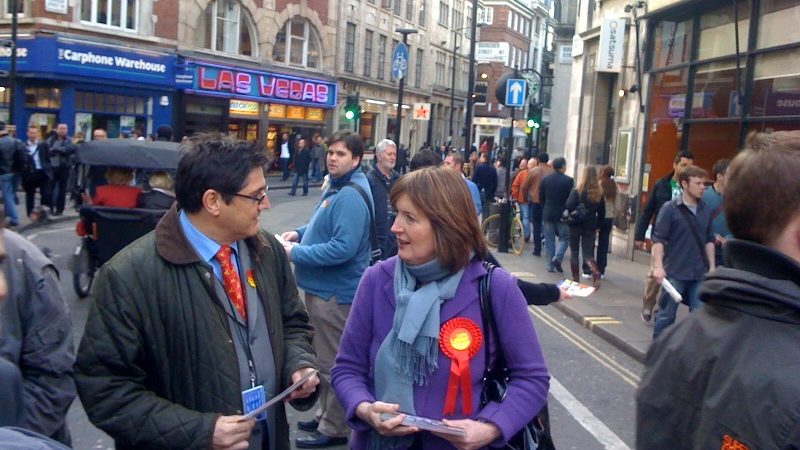
A Twitter discussion yesterday made me think about the value of what many activists do year in year out – knocking on doors of members of the public. Is it totally pointless?
The exceptionally active MP Stella Creasy seemed to think so in the brief exchange we had on Twitter. She was annoyed that Mark Ferguson suggested that more MPs should be increasing their contact rates with the public following the South Shields by-election. Instead she argued that community campaigning is more successful.
Now don’t get me wrong. I’m a big fan of community campaigning and totally eschew the bad old days of simply knocking on doors to ask how people vote. But that style of door knocking is in the past, or should be by now. Many parties now use a combination of door knocking with community campaigning. Indeed many MPs have been doing this for yonks – just look at Gisela Stuart’s team in Birmingham Edgbaston.
Street stalls, noisy protests, community clean-ups and coffee mornings are important in the mix. But what about all those people who you miss?
Trust in politicians has hit a new low with just 18% of the public saying they would trust us to tell the truth, compared to 21% who would trust bankers. It is a sad day for us when those who have caused the financial crisis are viewed more highly than those of us trying to find solutions to it.
Because elections have become less competitive over the last fifty years, we have targeted our activity to death, in some cases relying on people to vote for us through a sense of loyalty. It is no surprise that people feel disengaged when no one political has ever knocked on their door and spoken to them about their noisy neighbours or their need for a community centre.
In Norwich we very rarely conduct doorstep sessions which aren’t accompanied by a petition for a campaign we are running or a survey for local residents to complete. For example, we recently highlighted the potential impact of fire services cuts with a petition which garnered over 600 signatures on the doorstep and forced the Tory fire chief to deny there would be any station closures or cuts to fire engines. The first time he’d done so. We’ll be writing back to them to show that petitions can work.
In areas where we don’t have councillors, we conduct community surveys to build up our knowledge base and to identify our local campaigns. We recently won three County Council seats from the Green Party – the first time we have ever done so in Norwich – off the back of conducting surveys which identified issues shared by people on small clusters of streets. Once we’d heard about the pot holes, speeding and lack of grit bins, we wrote to relevant authorities and told the community about it.
I agree with many community activists’ concerns that Contact Creator does not allow us to collect qualitative data about people’s gripes and I would love to see this facility introduced. Yet it doesn’t mean that asking someone’s voting intention is pointless. It takes a few seconds at the end of your conversation on the doorstep and gives you a way of judging the impact of your community campaigns. To have no way of recording whether your community campaigns are changing minds before an election is like sailing out to sea without a compass. And how on earth do you know where your voters are on election day? Telepathy?
Voter identification is an old, but trusted tool. Look at the seats which swung against the tide in 2010 – Liverpool West Derby, Islington South, Chesterfield – these all had very high voter ID rates and solid community campaigning too. In the London Mayoral elections, once again, those constituencies which posted higher voter ID rates, had a bigger impact on Labour turnout where they were paired with activity on the day. Voter ID is also something that the Party benefits from as a whole – MPs, Councillors and activists all move on. The data is left for the next generation to work with.
We need to put the community organising vs voter ID argument to rest. We can do both at the same time and we absolutely should. Contact Creator does need improvements but even Obama’s team were reported to have commended its ability to record people’s voting intentions. Let’s put together some constructive suggestions of how we can improve it to help us better organise in our communities, but I know I’ll be relying on trusty CC come May 2015.




More from LabourList
‘Labour won’t stop the far right by changing leaders — only by proving what the left can deliver’
‘Cutting Welsh university funding would be economic vandalism, not reform’
Sadiq Khan signals he will stand for a fourth term as London Mayor